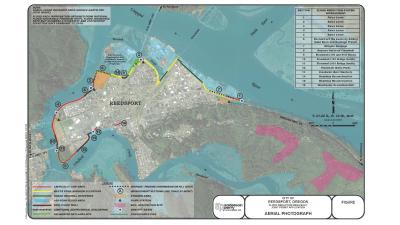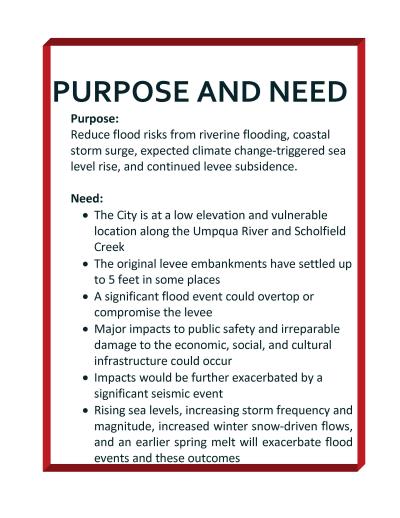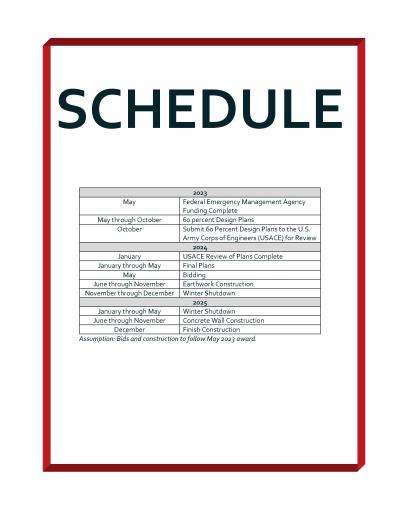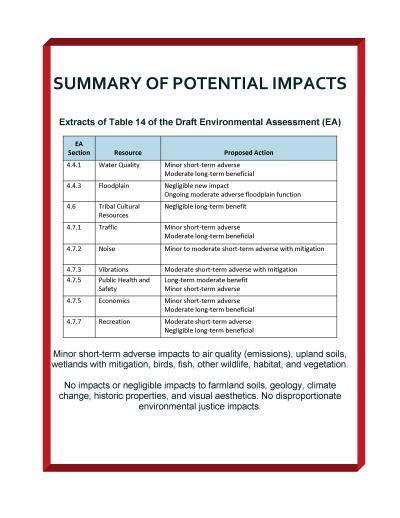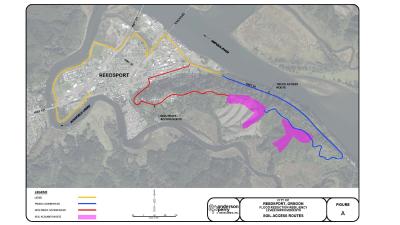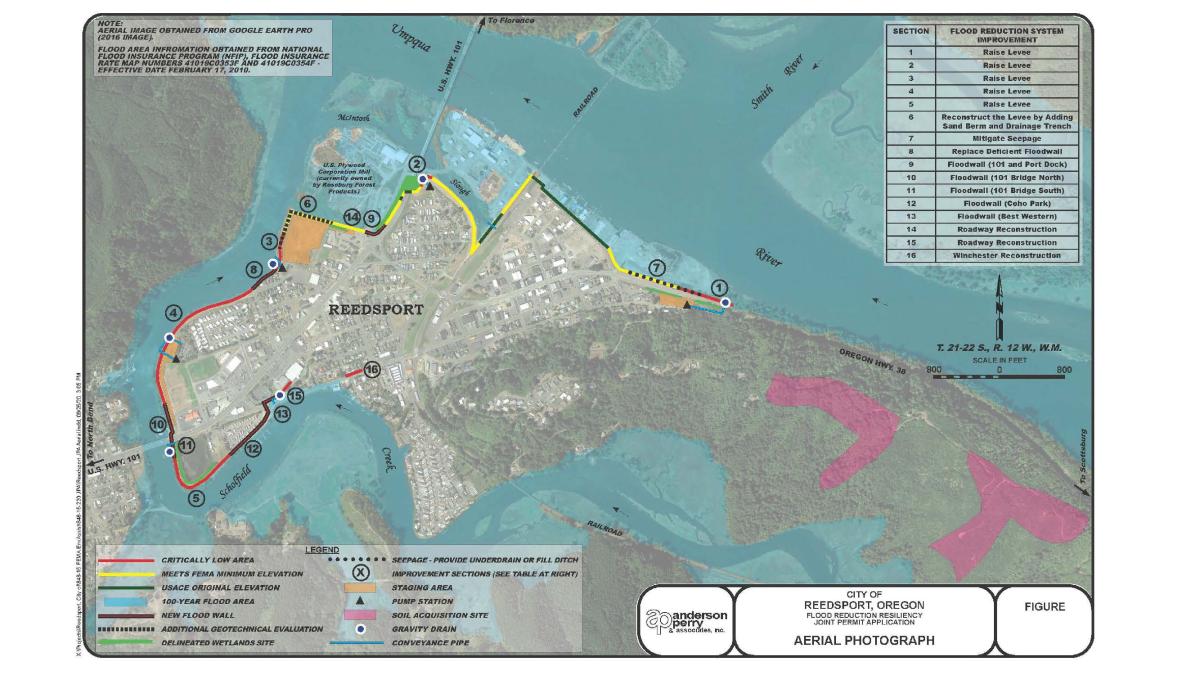
The Levee Improvement Project is formally known as the "Reedsport Flood Reduction Resiliency Project".
Levees and flood walls are typically built parallel to a waterway, most often a river, to reduce the risk of flooding on the landward side. Flood walls, which are typically made of concrete or steel, are often constructed on a levee crown (berm) to increase the height of the levee, without increasing the base of the embankment.
Reedsport's flood wall encompasses most of downtown excluding the areas adjacent to the Umpqua River (north of Riverfront Way and northwest of Port Dock Road) and River Bend Mobile Home Park. The federally constructed improvements, were completed in 1969, as an improvement to the existing levee system that was constructed prior to federal interest. The levee system is approximately three miles long.
Levee certification is the process that deals specifically with the design and physical condition of the levee, and is the responsibility of the levee owner (the City) in charge of the levee’s operations and maintenance. Certification must be completed for the levee to be eligible for accreditation by the Federal Emergency Management Agency (FEMA). Certification consists of documentation, signed and sealed by a registered Professional Engineer. The City of Reedsport's levee system is currently a "Provisionally Accredited Levee (PAL) System". A designation for a levee system that FEMA has previously accredited with reducing the flood hazards, and for which FEMA is awaiting data and/or documentation that will demonstrate the levee system’s compliance. The PAL designation is because some areas of the City’s levee system has settled below the 200 year flood event level, which was the original design criteria. The project will fix the settlement issue and raise the protection level of the levee beyond its originally designed capacity in order to counter future settlement and protect the City from a wider array of threats including a tsunami. This will allow the City to continue to participate in the National Flood Insurance Program.
In 2015, the City contracted with Anderson Perry & Associates, Inc. (engineering firm) as the City's Levee Certification Consultant. Through various task orders and data analysis, Housing and Urban Development advised that the City focus on the flooding occurring behind the levee wall which was a result of capacity issues with the storm water collection system or pump stations. Between 2015 and 2022, the City has utilized $484,395 of grant funding to overhaul 3 out of 4 of the City's pump stations, which included new piping, new pumps, electrical and infrastructure upgrades meeting current seismic (earthquake) standards.
City staff has continued working closely with Anderson Perry & Associates as well as FEMA to consult with several federal and state agencies to finalize permitting needed to begin upgrading and reconstructing the levee system. This project began in 2015 and culminated at the construction phase in 2017 when City Staff applied for a $5.6 million Federal Emergency Management Agency (FEMA) Grant.
On November 15, 2022 a public meeting was held regarding the key findings of the Environmental Assessment prepared by FEMA. The City and Anderson Perry provided an overview of the proposed modifications. The public had the opportunity to ask questions and provide public comment through December 5, 2022 directly to FEMA. FEMA will use these comments to inform its decision-making. If no significant issues are identified during the comment period, FEMA will finalize the Environmental Assessment, issue a Finding of No Significant Impact (FONSI), and proceed with funding the project. A copy of the presentation is available below.

